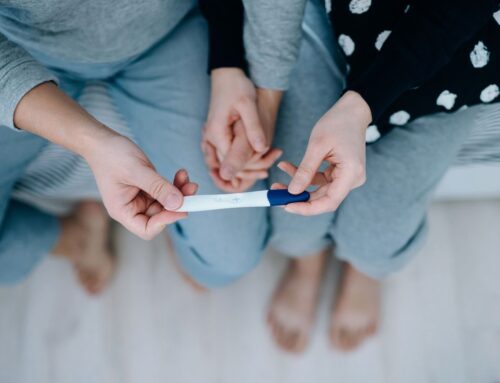As the name suggests, cryptic pregnancy is a phenomenon that many people have heard stories about but rarely delve into. Also called a stealth pregnancy, this refers to cases where a pregnant person doesn’t realize they are pregnant until months later, or in some cases, even up until labor begins. Although these instances are rare, they are not quite as rare as people may assume. 1 in 2,500 women do not find out they are pregnant until they are about to deliver, which is 3 times more common than the chance of having triplets.
One of the first reactions people have when learning about cryptic pregnancies is bewilderment over how a person could possibly not realize they are pregnant. The rationale that forms is typically that the woman must have been in denial all throughout. While there are indeed many instances where this is true, there are also many instances where a person reasonably did not know they were pregnant. We will discuss a few of the most common reasons why.

Bleeding During Pregnancy
One of the first signs of pregnancy is a missed period. Some women who have had a cryptic pregnancy claim to have had their period throughout the duration of the pregnancy. However, this is actually not physically possible. A menstrual cycle is the shedding of the lining of the uterus. If this occurs while you are pregnant, this means you are having a miscarriage. Some people may confuse intermittent bleeding, or “spotting,” with an actual period, which can even occur around the same time that they would expect their regular period.
Negative Tests
A lot of home pregnancy tests tend to boast that they are 99% effective. However, the effectiveness actually varies depending on many different factors, including the quality of the pregnancy test kit, when the test was taken, the age of the person taking the test, and how well the test instructions were followed. Kit instructions recommend that a woman wait at least 9 days after a missed period for more accurate results. Women who waited less than the 9 days recommended have up to a 33% chance of receiving a false-negative result. Women who have had cryptic pregnancies sometimes cite false-negative results from pregnancy tests as one of the factors that kept them from realizing they were pregnant.
Minimal Symptoms
Not everyone experiences pregnancy symptoms the same. Some women experience less nausea, or gain more weight than the average pregnant person. Due to fluctuations in hormone levels, symptoms can also come and go. Some pregnant women experience long spells where they feel less symptoms, and with much less intensity. Women who had cryptic pregnancies tend to bring up how they experienced perceivably little-to-no outward symptoms that they were pregnant, even those who are not first time mothers. Some women believed their belly had become enlarged from weight gain or bloating. Women from low-income backgrounds may also not be sufficiently educated on what the signs of pregnancy look like.
Belly Size
One of the clearest signs that a person may be pregnant is a large growing belly. When people hear about cryptic pregnancies that continue until labor, how a person could possibly not notice their growing belly is typically one of the first thoughts they have. Pregnant bellies range in size from large and pronounced to small and inconspicuous. For women who bore exceptionally small bellies during a pregnancy, it is not out of the realm of possibility that they may not notice they are pregnant until late.
I hope that this read helped to demystify cryptic pregnancy. While it is rare, and it can be an incredibly unique experience for some women, they are not as unusual as you may initially think. Women who experience cryptic pregnancy are also not necessarily in denial. So it is important to remember that every pregnancy looks different. If you believe you may be pregnant despite false-negative results, please see a health professional.
Works Cited
Bellefonds, Colleen De. “Can You Be Pregnant with No Symptoms?” Can You Be Pregnant With No Symptoms?, The Bump, 27 Dec. 2023, www.thebump.com/a/no-pregnancy-symptoms#.
“Bleeding and Spotting from the Vagina during Pregnancy.” March of Dimes, Apr. 2020, www.marchofdimes.org/find-support/topics/pregnancy/bleeding-and-spotting-vagina-during-pregnancy#:~:text=Bleeding%20and%20spotting%20in%20pregnancy,spotting%2C%20even%20if%20it%20stops.
Valanis, B G, and C S Perlman. “Home Pregnancy Testing Kits: Prevalence of Use, False-Negative Rates, and Compliance with Instructions.” American Journal of Public Health, U.S. National Library of Medicine, Sept. 1982, www.ncbi.nlm.nih.gov/pmc/articles/PMC1650088/?page=2.
“What Is Cryptic Pregnancy?” Edited by Traci C Johnson, WebMD, WebMD, 30 Jan. 2023, www.webmd.com/baby/what-is-cryptic-pregnancy.





